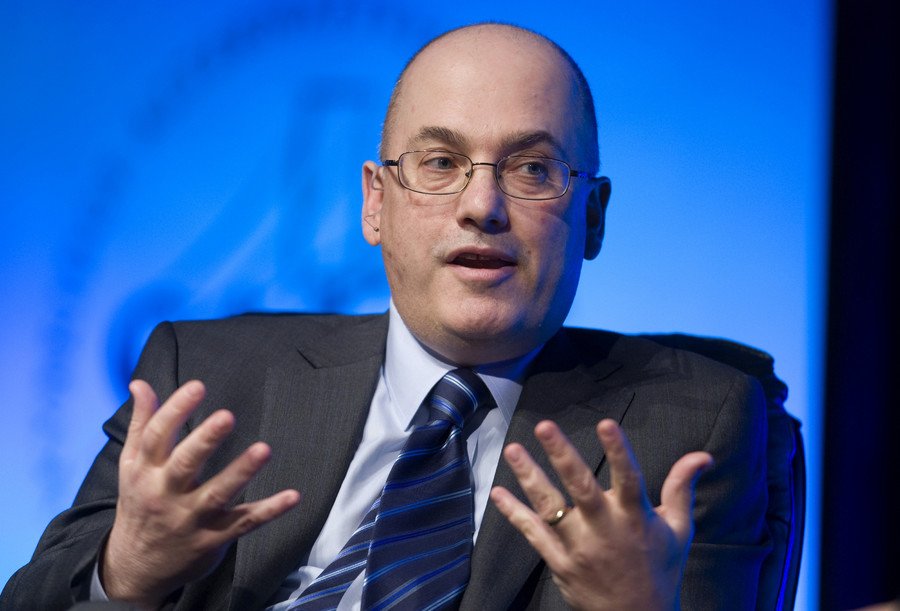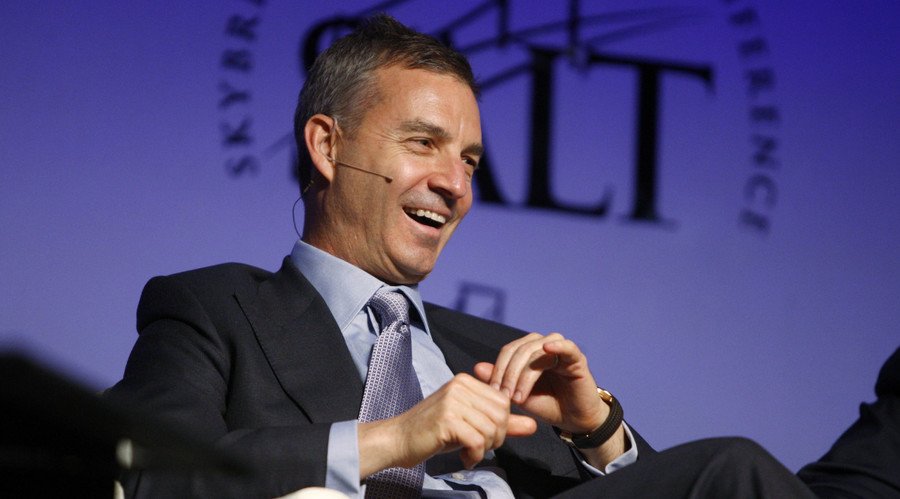Bermuda Triangle: Where the wealthiest make their money mysteriously disappear

America’s wealthiest are saving billions in taxes by routing their money through Bermuda, according to a New York Times (NYT) investigation.
Hedge fund magnates Daniel S Loeb, Louis Moore Bacon and Steven A Cohen are among those exploiting a financial loophole to save a fortune through a private tax system, write Noam Scheiber and Patricia Cohen in a good old-fashioned piece of American journalism.
The billionaires have invested large sums in art and millions more in political candidates.

Allianz’s Global Wealth Report 2015 rated the US as the wealthiest - and most unequal - country in the world. The growing divide between rich and poor is driven by this sophisticated method for shielding their fortunes.
The NYT report says the so-called “income defense industry” consists of top-shelf lawyers, estate planners, lobbyists, and anti-tax activists exploiting (and creating) loopholes unavailable to middle or working class taxpayers.
Who knew there was an "income defense industry" to protect ultra rich from paying taxes https://t.co/M64kF6Uv5x
— Cathy Davidson (@CathyNDavidson) December 30, 2015Operating in the shadows of Washington and Wall Street, mostly in tax courts and private Internal Revenue Service (IRS) negotiations, NYT says the effect has been to create a kind of private tax system open to less than one percent of Americans.
The result is a significant drop in the level of tax paid by the highest earners, money that could be used to address the country's growing hunger and homeless problem.
When Bill Clinton was elected US President in 1993, the 400 highest-earning taxpayers in America paid nearly 27 percent of their income in federal taxes, according to IRS data.
By the time Obama was re-elected in 2012, this had fallen to below 17 percent.
At its peak, the top US tax rate was 94% in 1944 and 1945, but it's been on a steady decline since then.
@SenSanders If we had your 94% tax rate, every body could have free healthcare, food, housing, etc, etc, etc....
— MountieFan16 (@MountaineerFan4) December 26, 2015NYT found that if the top 400 earners were taxed like an average American in 2012, their tax obligations would have doubled, not counting the income hidden through "convoluted partnerships, high-end investment funds, opaque family trusts, and foreign shell corporations".
The techniques applied are designed to be too complicated for regulators, the media, and the general public to understand, but NYT explains their principle is quite simple - convert one type of income into another type that’s taxed at a lower rate.

Loeb loves this technique and through a Bermuda-based reinsurance company he set up in 2013, he transforms "his profits from short-term bets in the market", taxed at roughly 40 percent, into capital gains, a nearly 50% drop in tax rate.
NYT adds this company is "active in the insurance business, not merely a tax dodge".
Charitable trusts purchasing a "private placement life insurance policy" is another way top earners reduce their tax, according to NYT.
IRS-we can't do our job. Congress could help. Not more budget $. Pass tax reform. Simplified code=lower admin cost. https://t.co/ANdUok2ms5
— TheWashingtonUpdate (@TheWashUpdate) November 13, 2015Lawmakers in Congress managed to slip a provision past lobbyists in the October budget deal which gives the IRS more power to collect "underpaid taxes", but since the rules don't take effect until 2018, it gives "the wealthy plenty of time to weaken them further".
The IRS faced budget cuts and political pressure in recent years, losing 5,000 enforcement officers after funding was reduced by 15 percent between 2010 and 2014.
"Astroturf" groups like FreedomWorks and Americans for Tax Reform, backed by super-rich donors, called for impeaching the IRS commissioner.
For wasting 500,000 hours on union organizing activity, the IRS named to ATR’s Naughty List https://t.co/NxJviLtifQ
— ATR (@taxreformer) December 29, 2015IRS Commissioner John Koskinen has failed to testify truthfully about the IRS targeting scandal https://t.co/PGyMeCaIRs#ImpeachKoskinen
— Jenny Beth Martin (@jennybethm) December 31, 2015This year, the tax crusaders have most of the presidential candidates on their side, pushing the low-tax agenda in the media and on the campaign trail.
Republicans count hedge fund investor Robert Mercer and options trader Jeffrey Yass as financial backers, while Democrats get millions from hedge fund investor James Simons.
Mercer and Yass also back theClub for Growth, which has aided primary challenges against Republicans who have voted in favor of higher taxes.
In 2014, the Club for Growth Action fund raised more than $9 million and spent much of it helping candidates critical of the IRS.













